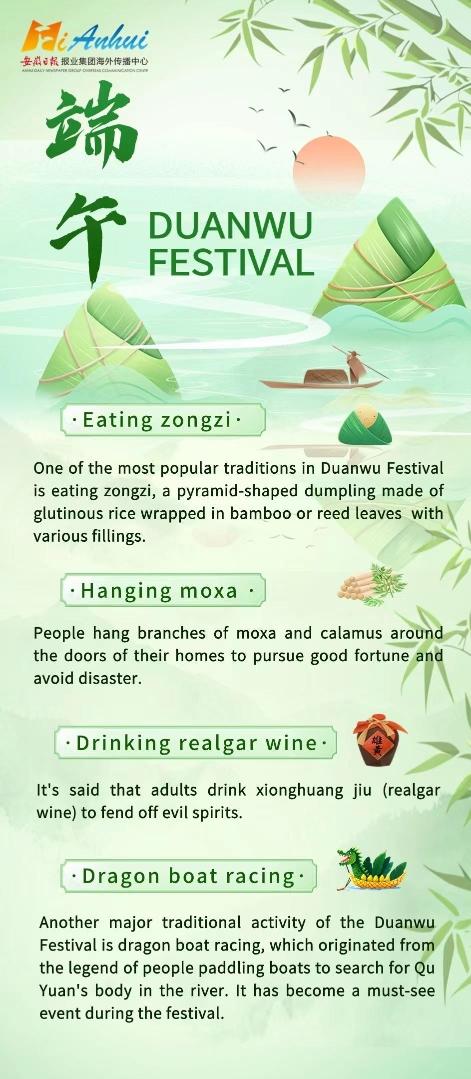Today marks the Duanwu Festival, or the Dragon Boat Festival. As a traditional Chinese festival, what do you know about its customs? It falls on the fifth day of the fifth lunar month according to the Chinese lunar calendar and has a history of more than 2000 years. Known as one of the four major traditional Chinese festivals, along with the Spring Festival, Qingming Festival and Mid-Autumn Festival, the Duanwu Festival is also the first Chinese festival to be included in the UNESCO world intangible cultural heritage list in 2009.
Among various legends about the origin of this festival, the most widely accepted one is to commemorate Qu Yuan, a patriotic poet and statesman from the State of Chu during the Warring States Period. When Chu was conquered by Qin, Qu Yuan was so grieved that he committed suicide by drowning himself in the Miluo River on the fifth day of the fifth lunar month. After his death, the people of Chu were sorrowful and rushed to the riverbank to pay respects to him. They rowed boats to look for his body and threw sticky rice dumplings (zongzi) into the river to prevent fish and shrimp from devouring his body.
Rowing dragon boats and eating zongzi have become customs of the festival and have been passed down to the present. As a top star and the most distinctive delicacy during the festival, zongzi has different flavors in various regions. With glutinous rice as the main ingredient, it’s wrapped into bamboo or reed leaves with diverse fillings. In the north, zongzi is usually sweet with red dates and bean paste, while in the south zongzi is usually salty with fresh meat, ham and egg yolk. Nowadays, zongzi has become a delicacy in daily life and embraced more flavors, reflecting the increasingly diverse preferences of people from different regions. In addition to these traditional fillings, novel flavors like ice cream, chocolate, durian, and stinky tofu, gradually emerge to meet increasing expectations of people’s taste buds. During the festival, people also hang moxa and calamus in their houses, wear sachets stuffed with herbs, and drink xionghuang jiu (realgar wine) to ward off evil spirits and diseases.













